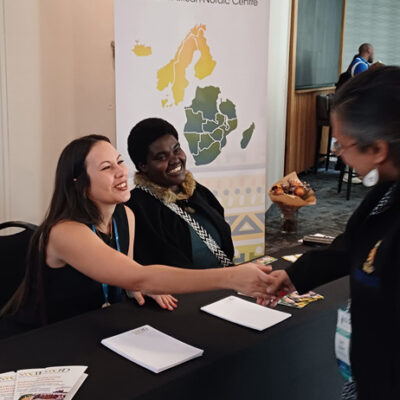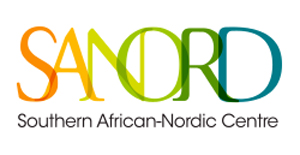SANORD Special Interest Groups (SIG) are focused subgroups within SANORD network that is dedicated to addressing specific issues or areas of interest. These groups are formed to concentrate expertise, resources, and efforts on particular topics, challenges, or goals that are relevant to their members.
SIG aim to do the following:
- Brings Together Experts: It gathers individuals with specialised knowledge or interests in a particular field to collaborate and share insights.
- Focuses on Specific Topics: The group concentrates on specific subjects or issues, such as equity, sustainability, or technological innovation, to advance understanding and solutions.
- Facilitates Collaboration: It promotes joint efforts and partnerships among members to address common challenges and achieve shared objectives.
- Organises Activities: SIGs may organise symposia, workshops, and seminars, as well as publish research or policy briefs related to their focus area.
- Influences Policy and Practice: By generating knowledge and recommendations, SIGs aim to impact policies and practices relevant to their specialised field.
Overall, a SIG serves as a dedicated forum for in-depth exploration and advancement of specific issues within a broader organisational framework.
As the innovation in this group is defined in the very broad and multidisciplinary way – in addition to the technological innovations – innovation can also be e.g. social innovation. It can, for example, be a product, service, mode of organization or even a new area for modified activities.

Are you interested to join?
As the group is recently established, any new ideas, new active members and new input for joint activities and projects are welcome! The SIG 8 coordinating team at the University of Turku is encouraging anyone interested to join the group for future development of joint activities and projects as well as to share information in this platform.
To join and receive information and invitation to the on-line meetings, please add your contact information and give the coordinator team at the University of Turku and it’s FAPI network permissions to add you to the SIG 9 communication platforms here:
Creating an enabling enviroment for student innovation and sustainable enterprise development in the era of Digilization
Educator: Jimmy Mohaleirinj
Email:
Capacitation, Empowerment and the Next Generation Scholar
SIG coordinator: Irinja Paakkanen
Email: irpaak@utu.fi
Administration of Internationalization: Best Practice
SIG coordinator: Elin Kvaale
Email: elin.kvaale@hvl.no
Tourism and the SDG’s
SIG coordinator: Jarkko Saarinen
Email: jarkko.saarinen@oulu.fi
Tourism is an important and growing sector of the economy in many parts of Global South. The sector is recognized as a vehicle for social and economic development, local empowerment and poverty reduction. While tourism has a great potential for income and employment creation, the growth of tourism comes with its own set of risks and impacts for destinations. Thus, there is a critical need for sustainability thinking in tourism studies and education. The Special Interest Group 6 – Tourism and the SDG’s – aims to activate research and education that considers the integration of SDGs to tourism development and how to make tourism more inclusive, responsible, and resilient in the future.
Equity, Africa and collaboration for the SDG’s in the global South
SIG coordinator: Umesh Bawa
Email: ubawa@uwc.ac.za
The Special Interest Group (SIG) on Equity, Africa, and Collaboration for the SDGs in the Global South is a dedicated forum within the SANORD network focused on advancing sustainable development and equity in Southern African and other global South regions. This SIG focuses on critical issues related to social, economic, and environmental equity, while fostering collaboration to achieve sustainable development goals (SDGs) effectively. Interested colleagues can join and contribute to the forum discussions.
Objectives:
- Promote Equity:
- Address Regional Inequalities: Identify and address disparities in access to resources, opportunities, and benefits among different groups within Southern Africa and other Global South regions.
- Advocate for Inclusive Policies: Work towards inclusive and equitable policies that ensure fair distribution of resources and opportunities, benefiting marginalised and underserved communities.
- Advance the SDGs:
- Implement SDG Strategies: Develop and support initiatives that align with the SDGs, particularly those that address poverty, health, education, and sustainable development.
- Foster Regional and Global Collaboration:
- Strengthen Partnerships: Build and strengthen partnerships between academic institutions, governmental bodies, non-governmental organisations, and other stakeholders in the Global South.
- Share Best Practices: Facilitate the exchange of knowledge, research findings, and best practices to address common challenges and promote sustainable development.
- Enhance Regional Representation:
- Regional Coordination: Ensure that the perspectives and priorities of Southern Africa and other Global South regions are represented in global discussions and initiatives related to the SDGs.
- Capacity Building: Support the development of local expertise and capacity in addressing SDG-related challenges, fostering a more impactful and sustainable approach to development.
Key Activities:
- Organise Workshops and symposia: Host events to discuss equity issues, share research, and collaborate on SDG initiatives.
- Facilitate Networking Opportunities: Create platforms for SANORD community to connect, collaborate, and engage in joint projects and initiatives.
The SIG on Equity, Africa, and Collaboration for the SDGs would play a pivotal role in advancing sustainable development in the Global South by addressing regional challenges, fostering collaboration, and ensuring that local voices are heard in the pursuit of global goals. Partnership with SANORD members in the North are critical in achieving these goals.
Industry, Innovation and Infrastructure
SIG coordinator: Kirsi Korpela
Email: fapi-coordinator@utu.fi
SANORD Special interest Group for SDG 9 United Nations Sustainability Development Goal 9 aims to build resilient infrastructure, promote sustainable industrialisation and foster innovation.
These aims include inclusive and sustainable industrialisation together with innovation and infrastructure. The purpose is to unleash dynamic and competitive economic forces, to generate employment and income, to promote new technologies, to facilitate international trade as well as to enable the efficient use of resources.
As the innovation in this group is defined in the very broad and multidisciplinary way – in addition to the technological innovations – innovation can also be e.g. social innovation. It can, for example, be a product, service, mode of organization or even a new area for modified activities. Are you interested to join?
As the group is recently established, any new ideas, new active members and new input for joint activities and projects are welcome! The SIG 8 coordinating team at the University of Turku is encouraging anyone interested to join the group for future development of joint activities and projects as well as to share information in this platform.
Gender Balance and Equity in higher Education
SIG coordinator: Moleyane Refilwe
Email: lmasiba@cut.ac.za
Gender balance and equity in higher education are essential goals supported by numerous policies and initiatives. However, the implementation of these policies often falls short, resulting in gaps that hinder real progress. Women’s upward mobility in academia is frequently obstructed by challenges such as work-life balance, societal pressures, and institutional barriers.
This Special Interest Group (SIG) is dedicated to uncovering the deeper, both documented and undocumented, challenges that impede genuine gender equality in higher education. The SIG will focus on identifying the structural and systemic support mechanisms necessary to achieve true gender balance, while also addressing the prevailing challenges that limit the effectiveness of higher education institutions in promoting gender equity.
Key Discussion Points:
Gender Balance Ratios: Achieving balanced gender ratios is crucial for fostering diversity of thought, enhancing innovation, and ensuring that higher education institutions reflect the societies they serve. It also helps in breaking down stereotypes and promoting a more inclusive academic environment.
Mentoring and Retention of Skilled Female Staff: Effective mentoring and retention strategies are essential for developing a pipeline of skilled female leaders within higher education. These efforts help in creating an environment where women can advance in their careers, contribute to institutional leadership, and serve as role models for future generations.
Robust Policy Formulation to Redress Gender Equity: Well-formulated policies are foundational to achieving gender equity in higher education. They provide the framework for addressing systemic issues, ensuring fair treatment, and promoting equal opportunities for all genders. Effective policies also help in setting clear expectations, driving cultural change, and holding institutions accountable for progress.
Glass Ceilings: Current Trends and Corrective Measures: Addressing the glass ceiling is critical for ensuring that talented women can achieve leadership positions in higher education. This not only benefits the individuals involved but also enriches the institution by bringing diverse perspectives to the table. Corrective measures, such as bias training, transparent promotion processes, and targeted leadership development programs, are essential for dismantling these barriers and fostering a more inclusive leadership landscape
The SIG aims to bring together stakeholders from various higher education institutions to share experiences, challenges, and best practices. The objective is to develop actionable strategies that can be implemented to enhance gender balance and equity in higher education, ensuring that women have equal opportunities for advancement and leadership roles.
Achieving gender balance in higher education requires more than just policymaking; it demands a concerted effort to understand and address the real-world challenges women face in academia. This SIG will provide a platform for critical conversations, paving the way for meaningful progress toward true gender equality in higher education.

